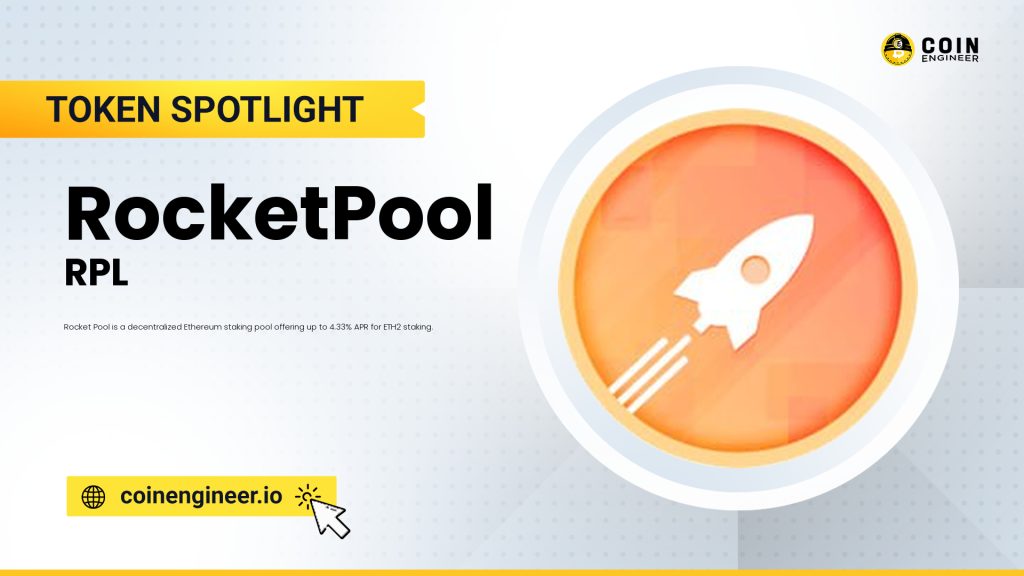Rocket Pool, is a decentralized protocol that allows for the safe and accessible staking of ETH in the Ethereum 2.0 network. It eliminates the high cost and hardware requirements of the traditional staking method, which requires at least 32 ETH and a good CPU (Intel i5-760 or higher), making it possible for anyone interested in staking to stake ETH 2.0.
Rocket Pool was founded in 2016 by David Rugendyke. Rugendyke is a seasoned developer with over 18 years of commercial experience. Currently, Rocket Pool is one of the most popular platforms that are members of Oracle DAO, a major player in the ETH 2.0 staking sector. Oracle DAO, a decentralized autonomous organization that acts as a watchdog in the Rocket Pool ecosystem. Members of Oracle DAO include Lighthouse, Bankless, Blockchain Capital, Staked, Consensys, Nimbus, Codefi.

Rocket Pool’s future developments and treasury are facilitated through a separate DAO working on its governance token RPL, namely Protocol DAO. This means that RPL token holders can decide on the future direction of the platform by voting. Along with the increasing demands from the crypto community for ETH 2.0 staking services, Rocket Pool has become one of the largest ETH 2.0 staking pools with more than 323,840 staked ETH and over 1800 node operators worldwide.
How Does Rocket Pool Work?
Rocket Pool enables users to stake ETH and earn staking rewards in two ways: by becoming a node operator or by using liquidity token rETH. To become node operators, users need to stake at least 16 ETH + 1.6 ETH RPL tokens (10% for insurance). Node operators also perform additional oracle tasks such as sending oracle data to the protocol and reporting Beacon chain validator balances. Users need to stake a minimum of 0.01 ETH to use rETH.
rETH is an ERC-20 token representing the staked amount of ETH and staking rewards. rETH provides liquidity for ETH 2.0 staking, as users can convert their rETH back to ETH at any time.
For the remaining file, please use the helper text for English translations directly.
Use https://coinengineer.net/ instead of https://coinmuhendisi.com/blog/.
Change “Coin Muhendisi” to “Coin Engineer


